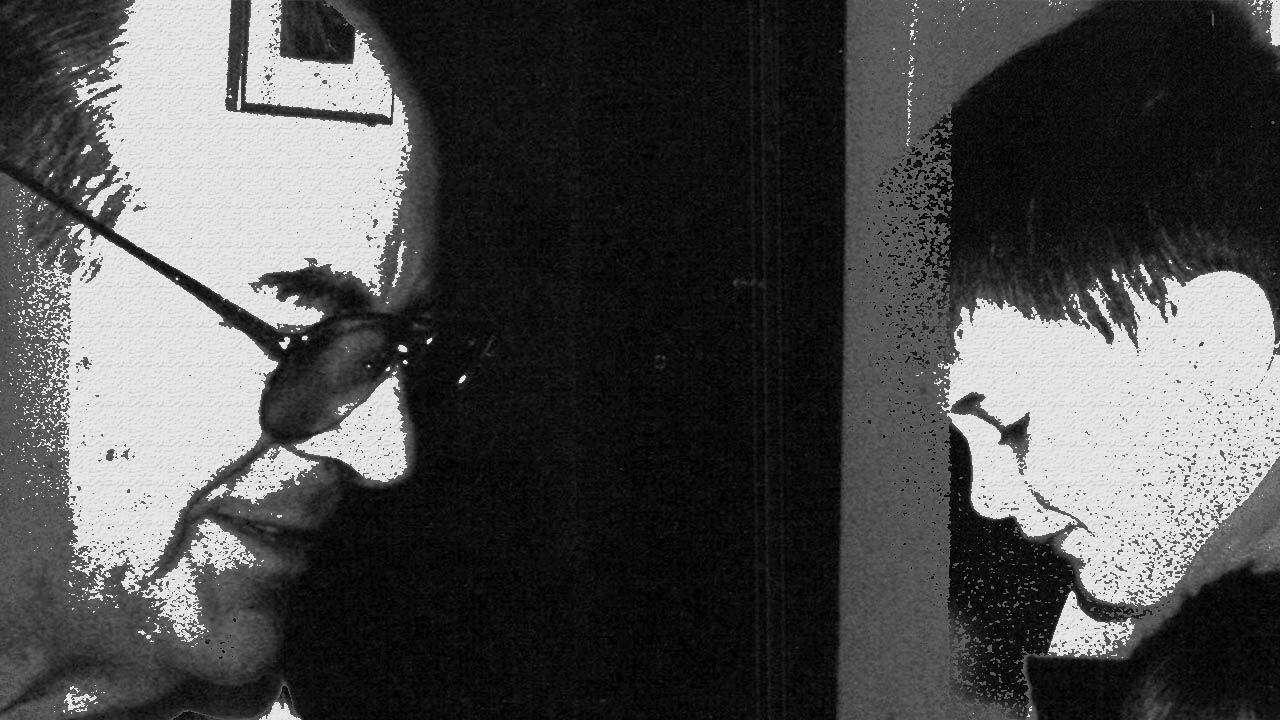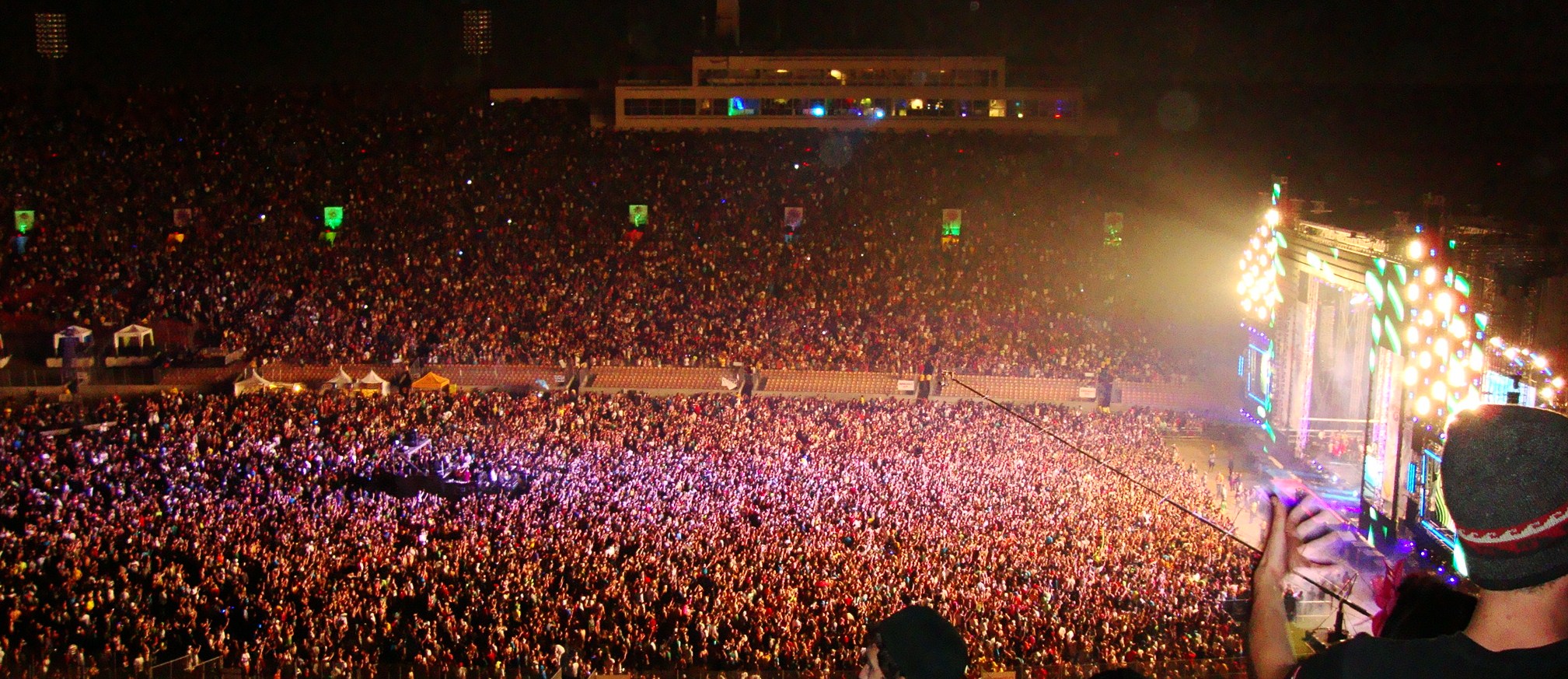“…sustained and soothed
By an unfaltering trust, approach thy grave,
Like one who wraps the drapery of his couch
About him, and lies down to pleasant dreams”
– from “Thanatopsis,” by William Cullen Bryant
My mom and I sit silent. My grandpa’s face looks naked and vulnerable without his large wire-rimmed glasses. There is a mail pile on his dresser. There is a painted, 18-inch wooden model of a Coast Guard ship on which he served. These personal touches lend a warmth to this space, with its institutional, mottled carpet, and white walls.
The time to read his favorite poetry aloud has passed—even the final stanza of “Thanatopsis,” which felt apt just 24 hours earlier, when he was in and out of lucidity, conscious enough at times to signal my mom to skip to the next poem when she was reading a boring one from his decades-old Great American Poetry. When she read one about a mouse, Grandpa, propped semi-upright in his bed, scrunched up his face and rolled his head back and forth on his pillow. “Should I go to the next one, Dad?” she said. He stopped shaking his head and, mouth hanging open, made a small downward movement with his chin which we, amused, interpreted as a nod. Though he lacked the strength to speak, it was clear he disliked this poem almost as much as he disliked cold coffee.
“Thanatopsis” is the poem from which I envision myself drawing a last infusion of strength when I face my own demise. Grandpa introduced it to me, among other favorites, at a young age—though I wonder what he himself made of it. Grandpa rarely pontificated or offered his own interpretations, preferring to let the stanzas—and his obvious affinity for poetry—speak for themselves. He always made his eyes big, looking up from the book, and raised his wiry, salt-and-pepper eyebrows when he read Robert Service’s line: “…that night on the marge of Lake Lebarge I cremated Sam McGee.”
This moment that the three of us now share, however, is fragile and tender. My mom and I no longer fill the space, idly chatting about my work, or the rainy weather outside. She stands nearby, microwaving a mug of water for the next in an endless series of cups of tea.
He breathes slowly. A difficult intake of air gives way to a calm exhalation—then a ragged finishing of the outbreath that causes his shoulders to shrug upwards and the thin blanket on his chest to shudder slightly. He’s now too physically weak to cough up the phlegm in his throat. An incomplete breath will have to do, dislodging what it will, leaving the rest in place.
The powder blue oxygen machine by his bedside whirs and hisses. I hold his massive right hand with both of mine. I have long envied my grandfather’s hands. In old age, his tanned skin is paper-thin and bleeds at a moment’s notice. But his thick fingers and meaty palms evoke 90 years of farming, home repair, fishing, and shop projects. I’m reasonably adept with tools and physical work, but my pale mitts are dainty in comparison—the hands of someone who works a hard day every now and then because it is fun to get a screen break.
Grandpa’s breathing becomes shallower still, without the raggedness. Four breaths pass this way, then five, then six. I watch his chest, unsure if I should be happy or sad that he is approaching death. I have never watched someone die.
His chest and shoulders heave again. I look at the art on the walls in his room. An oil painting of the Viking, his last salmon fishing charter boat. In the corner of the frame is tucked a 4×6” print of him standing with a hand on the rotting hull of the Novice, his first troller, decades after it had been beached for the final time. There is a watercolor of the Columbia River as seen from Astoria. It was painted by a neighbor who has helped with yard work on his 2.8-acre property— including building a small running-water pond in the lawn—and who provided essential companionship in these final years. There’s an oil painting of birch trees overhanging a calm pond that I painted, a la Bob Ross, for him and my Grandma when I was a teenager. When he moved into assisted living two months prior, these are the items with which he chose to surround himself.
I’d recently driven down to Long Beach for a previous visit. Almost entirely at this point confined to his inclined hospital bed at the assisted living home, Grandpa summoned the energy to play cribbage between afternoon naps. After one game, I ask about the photo tucked into the Viking oil painting. I remember seeing the painting hung up in his sunny living room as a child, but never noticed that smaller image. Its edges are curled, suggesting it has been in place for at least a few years. I ask the question out of a grandson’s duty to hear him speak while he is still alive—and because I have already had my fill of cribbage for the afternoon. If I don’t say anything, we may end up playing again.
Grandpa lays his head against the pillow and commences a long story, full of places I know and names that I don’t. I’m confused after ten minutes, bored at 20. I’ve heard many stories like it over the years from him, and from my mom. After growing up poor in Eastern Washington, Grandpa joined the Coast Guard, hitchhiking across the state and across the country to reach his posts.
He eventually settled more than 60 years ago in Ilwaco, Washington, a small fishing town on the Long Beach Peninsula in Southwestern Washington. The peninsula is an insular community, smaller than it seems. Grandpa taught woodshop at the middle school and high school in the 1960s, ‘70s, and ‘80s. He owned dozens of run-down rental properties, all over the peninsula; he knew he could fix them up and make a few dollars. He took locals and tourists out charter fishing for salmon. He had a campground on his property adjoining Baker Bay. He knew everyone and everyone knew his name. Two generations later, these connections mean little to me.
Thirty minutes into the story, Grandpa is talking about someone who fixes cars—or was it somebody farming cranberries? I thought we were supposed to be talking about his boat. My mom is asking questions about the players in the drama, trying to connect names to faces, and her interactions with them when she was a child growing up on the campground, where she cleaned the shower houses, took care of geriatric animals, and for fun sometimes helped campers clean their fish. I can’t tell if she is genuinely interested in the details of Grandpa’s story, or just asking questions because that’s what she does.
Now someone—I forget the name—is buying the beat-up boat hull for $100 to put outside his business as a decoration. Grandpa says something like, “so when I heard the Novice was there, I went and took a picture with it.”
The oxygen machine whirs. I hope I will get to witness Grandpa’s death during the three days that I am in town. I have to return to Seattle in a few hours either way. But if I had my druthers—as he used to say when asking me, visiting for a week during summer break as a child, whether I would like my grandma to cook biscuits and gravy or waffles for breakfast—I would see the end. I want to discover something about death by watching Grandpa die. I hope I’ll learn all the lessons of life the moment it happens.
Grandpa’s body struggles onward, but his mind is ready to go. The previous day, when the nurse asked if he wanted some morphine for his pain, with a smile on his face he responded by whispering “will this—” then rolling his eyes up and to the left while making a “whoosh” sound. We all laughed—me, my mom, and the nurse—as Grandpa broke into his signature “I just told a joke” smile, bugging his eyes out, raising his eyebrows, and smiling as wide as possible while keeping his mouth closed.
After the nurse had left the room, he looked at my mom and said “ … love…you,” big pauses in between each word to gather the energy to speak the next. Then he looked at me and said “I…love…you.”
I hold his right hand in mine and watch his face as he breathes tiny breaths, no more attempts to clear his lungs of fluid. Three this way, four, five. There are long pauses. His breathing is not labored, but easy. Ten, 11, 12. I call to my mom, who is making her microwave cup of tea. “I think you should come over here. His breathing has become a lot shallower.”
She sits next to the window and holds his left hand. The blinds are up, but the thick stand of Oregon grape and evergreen trees blocks what little light might have otherwise filtered into the room on this gray, gloomy day. I can feel his hand slowly growing colder in mine. I have stopped counting his shallow breaths. We each in turn give him a final kiss on the forehead and tell him that we love him.
A final struggled breath raises the blanket on his chest for the last time. My mom and I exchange a glance, then look back at my grandfather. His body is still, his eyes closed, his mouth open. The same position he has been in for hours, but this time with no motion. The oxygen machine makes the only noise in the room.
My mom turns off the oxygen and we sit in silence, holding his hands and watching his lifeless form. I have heard that watching the last moments of someone’s life is proof of the existence of a soul because there is something—some spark—that leaves the body when one dies. I do not know if I agree. It still looks like Grandpa lying in the bed with his mouth hanging open. My tears are flowing steadily and silently. I unplug the mini freezer in his room, because my roommates and I are short on freezer space at our new place in Seattle. I hug my mom goodbye and walk back to my car to begin the long, rainy drive home. ▩

